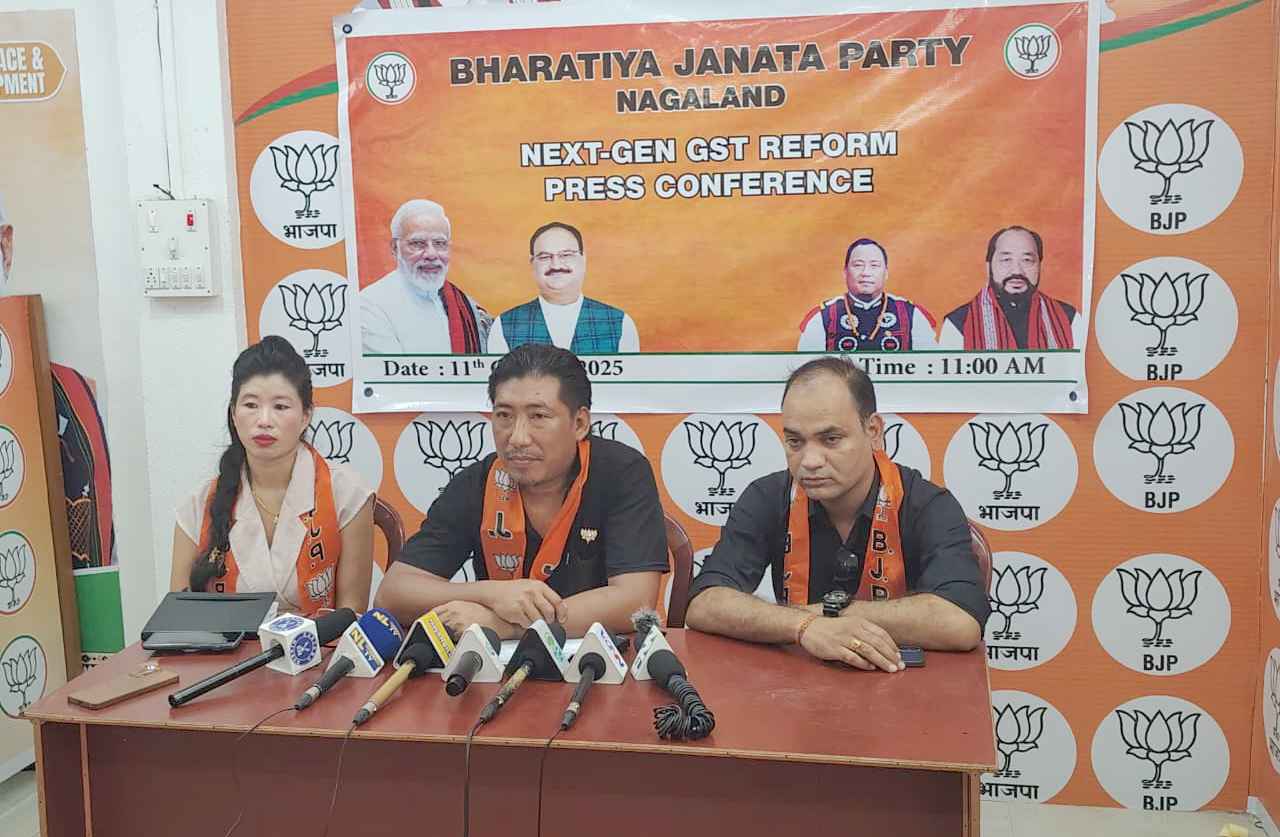The Bharatiya Janata Party (BJP), Nagaland, has launched an extensive state-wide campaign on the Next-Generation Goods and Services Tax (GST) reforms, in line with the national initiative led by Prime Minister Narendra Modi. The campaign, which began on September 22, will continue till October 28 across all districts of the state.
Addressing the media in Dimapur, Member Secretary, NextGen GST Reform, Akum Pongen said the ongoing GST reform campaign marks a significant milestone in India’s economic journey under the leadership of Prime Minister Modi. “This reform is not just a policy adjustment; it represents the culmination of a decade of the Modi government’s relentless, stable, and visionary economic management,” he stated.
Pongen informed that district committees have been constituted across all districts to reach out to the grassroots, with BJP karyakartas actively engaging traders, businessmen, and the general public to explain the benefits of the new GST structure.
He said that the party workers are taking this message to every marketplace, interacting with shopkeepers and traders and the feedback so far has been overwhelmingly positive. The people have welcomed the reform, describing it as a boon for society, he added.
He noted that the new GST structure, implemented from September 22, has significantly reduced tax rates across multiple categories. “Earlier, many essential items were taxed at 28%, which has now been brought down to 18%, and several others from 18% to 5%. Daily-use goods, small electronics, and even small cars have seen reductions. This directly benefits the poor and middle class by lowering prices and increasing purchasing power,” Pongen explained.
Calling the reform a “Diwali bonus” for the people, Pongen said that the reform is designed to reduce the burden on every citizen, enhance domestic consumption, and strengthen the economy from the ground up.
Download Nagaland Tribune app on Google Play

He elaborated that the new GST rates are now simplified into two primary slabs—5% and 12%—covering nearly 99% of goods that previously fell under higher brackets. “This new structure will make life easier for every household and business. It will empower citizens to spend, save, and invest more freely,” he said, adding that the move is expected to boost domestic consumption by nearly ₹2 lakh crore, four times the BMA allocation and and 10 times the scheme allocation of the country.
Highlighting the Modi government’s economic achievements, Pongen pointed out that the number of GST-registered businesses in India has more than doubled since 2017—from 65 lakh to over 1.5 crore—reflecting growing trust in the Indian economy. He also credited the 2019 corporate tax reforms as one of the deepest globally, allowing companies to reinvest and generate employment.
He further said that under the new structure, common goods are taxed between 0% and 5%, benefiting households, small traders, and local industries. “This model protects the poor and middle class while expanding India’s economic base,” he said.
Pongen reaffirmed that BJP Nagaland, under the leadership of Deputy Chief Minister Y. Patton and in coordination with central party initiatives, would continue spreading awareness of the reform across all districts until October 28.
Theralli Ezung, State Secretary of BJP Nagaland, compared taxes from the UPA era to the NDA era, and highlighted the benefits of the GST reduction by presenting the commodities, whose GST has been decreased.

